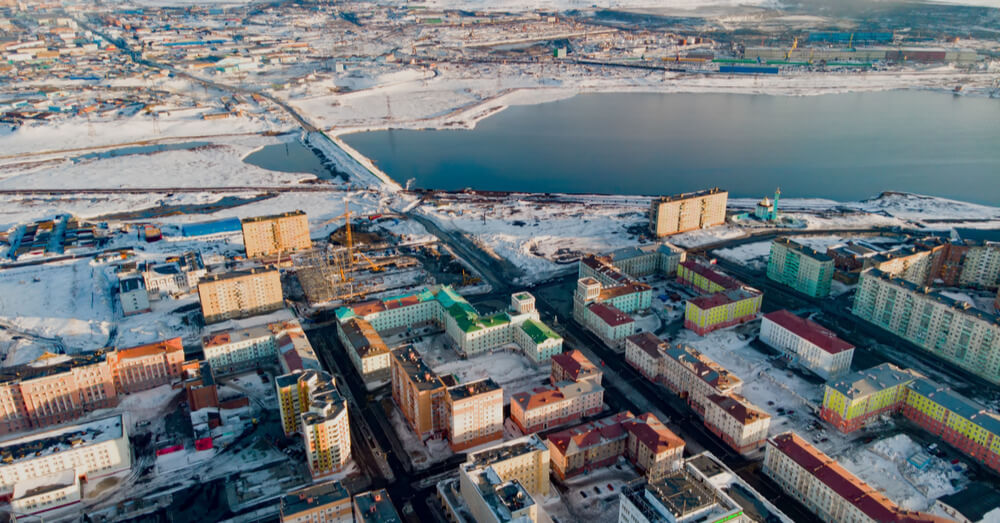
Cheap electricity rates and the cold weather may help ensure the longevity of crypto mining machinery
BitCluster, a crypto mining company from Russia, is setting up shop above the Arctic Circle, in the industrial area of Norilsk in the Taymyr Peninsula. This new mining farm will be churning out 11.2 megawatts of power for mining Bitcoin.
The farm will also function as a “mining hotel,” meaning it will host application-specific integrated circuits (ASICS) for customers and charge them for the electricity they consume.
The land used to set up the farm was formerly a nickel smelting plant that was owned by Nornickel. Nornickel was a Russian mining and smelting corporation that has been actively exploring the blockchain and crypto space. It is also planning to sell tokens that are backed by metals in the US and Switzerland. The nickel plant was shut down due to environmental concerns.
The spokesperson of the former nickel plant, Tatyana Arestova, revealed that the farm will soon be capable of generating 31 megawatts of electricity next year and as of writing, 150 ASICs of Bitmain’s latest model S19 are on their way to the Norilsk area.
BitCluster has already secured its first client, an undisclosed entity who originates from China. The company is currently working on the logistics of moving their client’s mining machinery from the Sichuan Province to Norilsk, where the price of electricity is significantly more affordable at less than four cents per kilowatt/hour.
“On Oct. 24, the rainy season in China ends, so they will have their electricity tariffs raised. Chinese miners will start moving around, looking for better tariffs.”
Alexander Pestryakov, the chairman of the Norilsk City Council, gave his approval for the plans to construct crypto mining centers, and shared his optimism for the future of the Arctic with crypto.
“I am sure this is only the beginning of the digital reality of Norilsk. We have fiber-optic communication lines, we have energy capacities, we have personnel, and we have infrastructure. I am convinced that any government should think for decades ahead, predict the development of technology and urban planning. Only then will cities in the Arctic develop along an intensive path.” he stated.
Pestryakov himself played an extensive and active part in negotiating with potential investors and proposing the northern city for the construction of data centers.
“The construction of data centers in the Arctic will attract large investments there, which will undoubtedly become a driver for the development of the regions,” Pestryakov finished.

